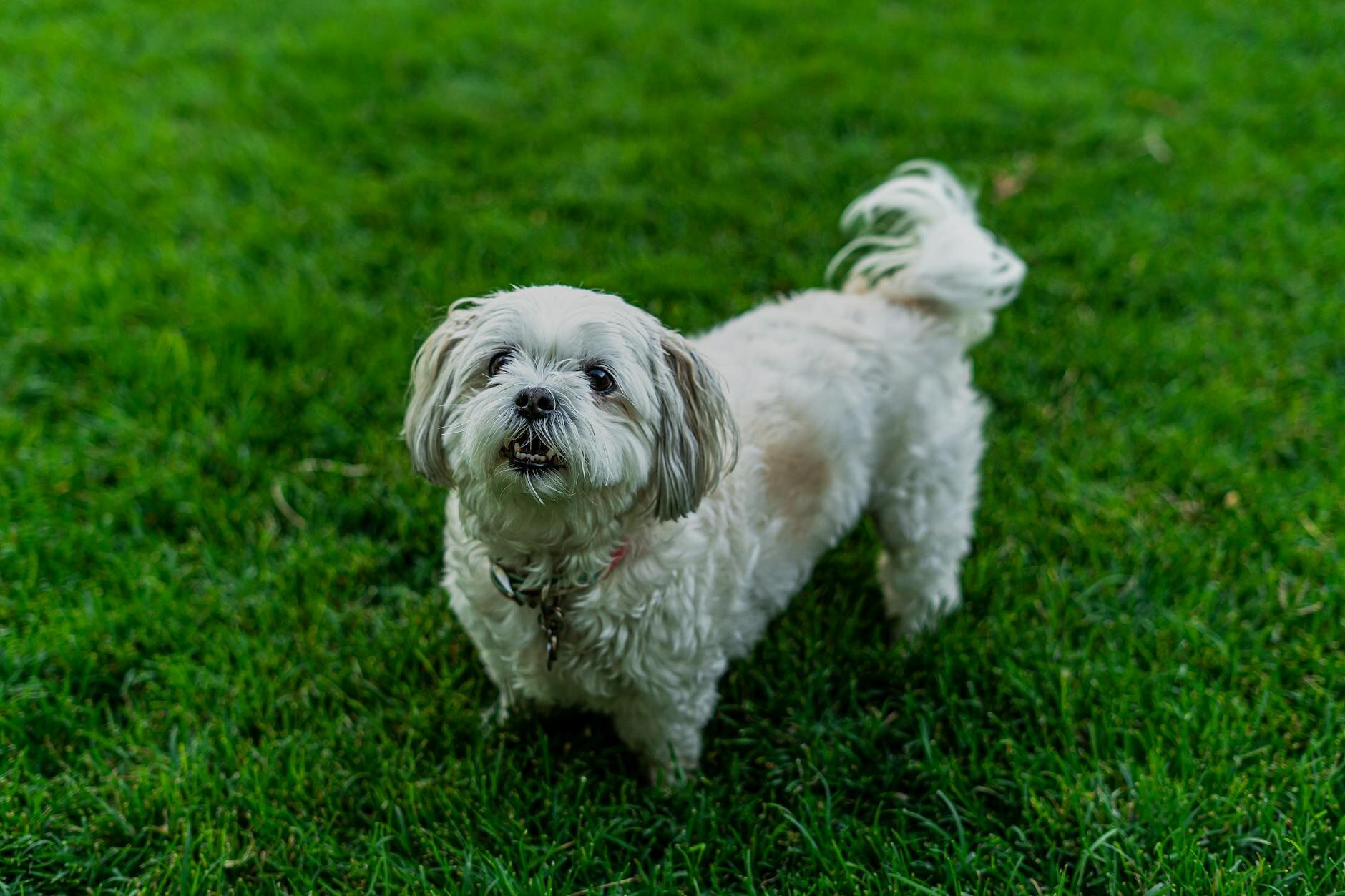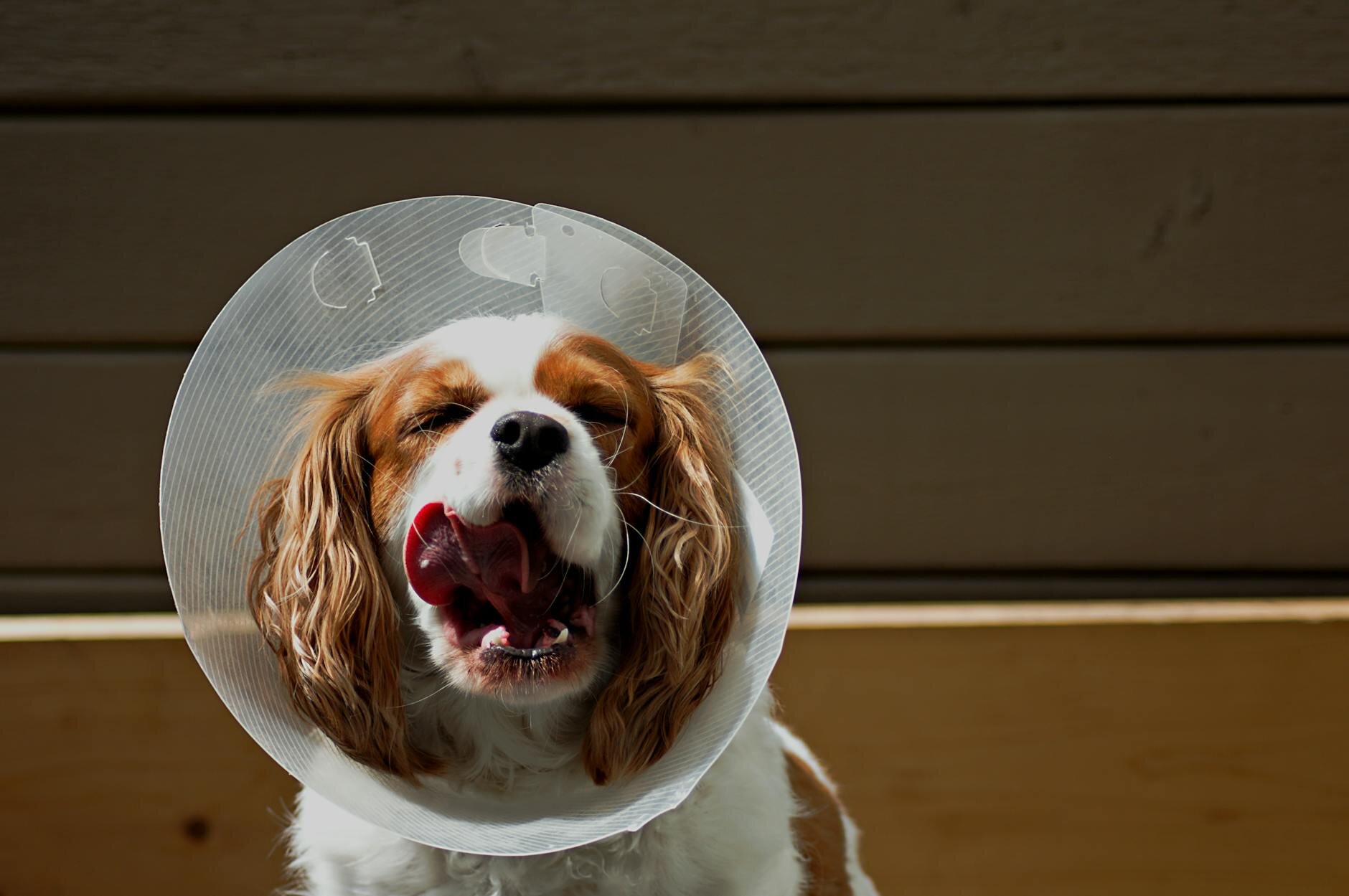Last Updated: 06/08/2025
Umbilical Hernias in Dogs
Worried about a lump on your puppy's belly? It might be an umbilical hernia, a common condition in young dogs. Learn about the signs, understand the treatment options, and find out what it means for your dog's long-term health.
Author: Dr Teagan Lever BVSc (Hons)
Reading Time: 3 minutes - short read
Umbilical hernias are a common condition seen in puppies and young dogs. While they may sound concerning, many cases may be harmless. This article will explain what umbilical hernias are, how to recognise them, and when veterinary care may be needed to keep your dog healthy and comfortable.
What is an umbilical hernia in dogs?

A hernia is a separation in the lining of a body cavity, and one of the most common kinds of hernia in dogs and cats is an umbilical hernia. An umbilical hernia is a separation in the abdominal wall at the site where the umbilical cord connects to the foetus (i.e. the belly button). The umbilical cord is the life supply for an unborn puppy or kitten; it carries all the nutrition and oxygen from the mother to the foetus and is responsible for carrying toxins and waste products away from the foetus for the mother's body to process. After birth, the cord is broken and the umbilical hole closes to form the belly button. An umbilical hernia occurs when this site fails to fuse properly and a gap is left between the abdomen and skin.
Are umbilical hernias hereditary in dogs?
A genetic trait may be responsible for the development of some umbilical hernias - meaning that they can be passed from parents to their offspring. This trait is recessive - meaning that the pup needs to receive 2 copies of the affected gene - one from the sire and one from the dam, in order to develop an umbilical hernia.
Are umbilical hernias dangerous?
Depending on the size and shape of the umbilical hernia, parts of abdominal organs may become stuck in the hernia hole, reducing blood flow which can cause your pet to become seriously ill. If you suspect that your pet may have an umbilical hernia it is best to have them examined by a vet.
Symptoms of umbilical hernias in dogs
Most umbilical hernias can be easily felt as a soft lump in the region of your puppy's belly button. In some cases you may feel a small gap or hole in the muscle under the skin or notice that the lump changes in shape or size. Reducible hernias are those in which the contents of the hernia can be 'reduced' or pushed back into the abdomen. The contents of non-reducible hernias cannot be pushed back into the abdomen, which indicates a partial obstruction, strangulation, or adhesion of the herniated contents to the opening of the hernia.
Symptoms which may indicate strangulation of the hernia contents include:
- Depression
- Lethargy
- Warm hernial sac
- Reduced appetite
- Vomiting
- Abdominal pain
If your pet presents with signs of organ strangulation, contact your veterinarian immediately.
Treatment of umbilical hernias in dogs

Hernias are usually found by your veterinarian at your puppy's first health check. When hernias are identified your vet will explain the necessary course of action. If they have not closed by themselves, small uncomplicated hernias are usually surgically repaired when your pet has their desexing surgery at around 6 months of age, however larger hernias or those that may risk constricting abdominal organs will need to be operated on immediately.
Ultrasound or x-rays can also be used to assess the abdomen and organs affected by the hernia which is then followed by surgery to repair the defect.
Cost of umbilical hernia surgery
For small umbilical hernias, their repair is often performed at the same time as desexing, and so there may be only be a minimal extra charge for the hernia repair, to account for the slightly longer surgery time. For more complicated hernias, where there are strangulated hernial contents, your dog may require stabilisation prior to surgery and surgery time may be longer depending on the severity of organ strangulation, so the cost would be higher.
Your vet will be able to advise you of an estimated cost of repair prior to surgery.
Prognosis of umbilical hernias in dogs
Most umbilical hernias are small and uncomplicated, and pose no health risk. Once the umbilical hernia is repaired (if required) and the site has healed, the condition is unlikely to recur and your pet can return to their usual activities and lead a normal life.
In summary, while the discovery of an umbilical hernia on your puppy can be concerning, it is a common condition that is usually straightforward to manage. A veterinary examination is essential to assess the hernia and rule out any risk of complications.
For the vast majority of dogs, treatment is highly successful - often performed alongside desexing - and the long-term outlook is overwhelmingly positive, with no lasting impact on their health or happiness.
Further Reading
Want to read more? Check out our other articles:
Everything You Need to Know About Desexing
History
Our experts continually monitor the health and wellness space and we update our articles when new information becomes available.
May 2022
Written by Dr Teagan Lever BVSc (Hons)Dr Teagan Lever BVSc (Hons)
Head Veterinarian, BVSc (Hons)
Pet Circle's Head Veterinarian, Dr Teagan graduated from the University of Queensland in 2010 and went on to work in small animal and mixed practice in various locations around QLD & ACT before joining Pet Circle in early 2016. Dr Teagan has special interests in dermatology, nutrition and preventative health care. She feels privileged to witness the special bond people share with their pets on a daily basis and enjoys forming lasting relationships with pet parents and their fur children.

